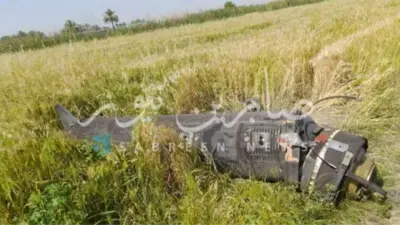We've updated our Privacy and Cookies Policy
We've made some important changes to our Privacy and Cookies Policy and we want you to know what this means for you and your data.
Strikes Update: How Wednesday 1 February’s walkouts will affect you
- By Zoe Conway
- Employment correspondent
Image source, Getty Images/BBC
It already has a nickname: Walkout Wednesday. Hardly a term of endearment but a reflection of just how widespread the disruption will be.
In fact, it's probably going to have the greatest impact of any strike day so far, because thousands of schools will be closed with parents stuck at home reliving the joys of working from home whilst trying to help their offspring to learn something.
Several unions have chosen to co-ordinate their action - so along with teachers - train drivers, university lecturers and civil servants are all going on strike.
Half a million people are expected to walk out. There will also be rallies, organised by the unions, to protest the government's plans to try and enforce a minimum service during strikes.
So how will all of this affect you?
You can read more or watch this report about why people are taking strike action, and below you can find information on how it could affect you.
Teachers and university staff
Wednesday's action by teachers in England and Wales in the National Education Union, which has around half a million members, will hit about 23,400 schools.
But some schools may not decide until the morning whether to close, fully or partially, as it depends on how many staff choose to join the strike.
If you haven't heard then the advice is to send your children in as normal, as parents "have a legal duty to send their children to school unless they are unwell."
Schools have been advised to open for vulnerable pupils, key workers' children and those taking exams.
Some will open for certain classes only.
Children may be set work to do remotely - but striking teachers are not required to do so.
In addition, there is no automatic right for a parent affected by a lawful strike to claim compensation if they lose pay looking after a child.
The NEU, which is the largest British education union, has said a 5% government pay offer is the equivalent of a pay cut as the pace of price rises is running at more than 10%.
In Scotland, teachers who are members of the Educational Institute of Scotland (EIS) are continuing strikes over pay as part of a rolling wave of action. On Wednesday schools in Clackmannanshire and Aberdeen will be affected.
Tens of thousands of staff at 150 universities across the UK are also taking industrial action.
Teaching staff, administrators, librarians and technicians are some some of the people who will be on strike over pay, working conditions and pension cuts.
Previous strikes in November had caused little disruption, with lectures rescheduled and coursework deadlines extended, employers said.
Train drivers
If you're taking the train on Wednesday, Network Rail says "plan ahead and check your first and last train times".
Action by members of the Aslef train drivers' union and RMT unions means train companies across England are affected along with services to Scotland and Wales.
There will be no services at all on: Avanti West Coast; Chiltern Railways; CrossCountry; East Midlands Railway; Gatwick Express; Great Northern; Heathrow Express; London Northwestern Railway; Northern; Southeastern; Southern; Thameslink, South Western Railway Island Line services; TransPennine Express; West Midlands Railway.
Greater Anglia (including Stansted Express) and Great Western Railway are advising passengers not to use them, and LNER will run a reduced service.
South Western says it intends to run a service on the strike days, but has warned there may be short notice delays and cancellations due to difficulty getting drivers and trains to where they need to be.
Civil servants
About 100,000 civil servants from 124 government departments and other bodies are also on strike on Wednesday over pay and conditions.
Border Force operations will be affected, with possible delays for international arrivals at all UK air and maritime ports as well as at UK border controls in Calais, Dunkirk and Coquelles in northern France.
Travellers planning to enter the UK may face longer waiting times at border control.
Some driving tests may be affected, the DVSA said, adding that it had contacted affected candidates.
Organisations such as Ofsted, the Maritime and Coastguard Agency, and the Home Office will also have staff on strike.
Bus drivers
About 1,900 Abellio bus drivers in London are taking industrial action, mostly affecting routes in south and west London.
The latest strikes will go ahead on 1, 2, and 3 February in a dispute over pay, the Unite union said.
Some local bus services to Heathrow will be disrupted.
Additional reporting by Tom Espiner
Follow Zoe Conway on Twitter
How are you affected by the strikes? Are you taking part in strike action? You can email: haveyoursay@bbc.co.uk.
Please include a contact number if you are willing to speak to a BBC journalist. You can also get in touch in the following ways:
- WhatsApp: +44 7756 165803
- Tweet: @BBC_HaveYourSay
- Or fill out the form below
- Please read our terms & conditions and privacy policy
If you are reading this page and can't see the form you will need to visit the mobile version of the BBC website to submit your question or comment or you can email us at HaveYourSay@bbc.co.uk. Please include your name, age and location with any submission.
Top Stories
Features & Analysis
Most read
Content is not available








